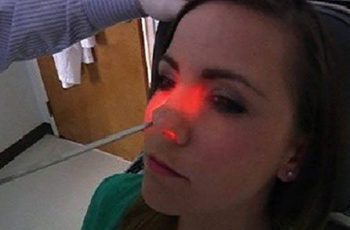What is the best food to eat right before a workout? Apples, bananas and oranges are a cinch to grab on the go or to toss in your gym bag. Plus, they’re packed with easy-to-digest, energizing carbohydrates (roughly 15 to 20 grams of carbs apiece). As important as pre-exercise fuel is, don’t forget to replenish afterward.
What foods should you not eat before a workout?
Worst Things to Eat or Drink Before a Workout
- Granola or Protein Bars. 1/12. These might seem like a good idea before you hit the gym, but there’s no clear definition of what they really are.
- High-Fiber Vegetables. 2/12.
- High-Fat Food. 3/12.
- Yogurt. 4/12.
- Smoothies. 5/12.
- Flaxseed. 6/12.
- Fast Food. 7/12.
- Energy Drinks. 8/12.
How can I get energy before a workout?
How To Get Energy Before A Workout
- Eat Two To Three Hours Beforehand.
- Have A Quick Pre-Workout Snack.
- Hydrate, Hydrate, Hydrate.
- Drink Something Caffeinated.
- Choose A Fun Routine.
- Reschedule Your Workout.
- Take A Power Nap.
- Go Outside.
What is best to eat before and after a workout? Experts say the best way to go is a snack that’s a combination of carbs (to give you fuel) and protein (to get your body ready to build and repair muscles). Some ideas include a banana and some peanut butter with crackers, a handful of nuts and raisins, or a hardboiled egg.
What is the best food to eat right before a workout? – Additional Questions
Is it bad to eat right before a workout?
Be well fueled going into a workout. Studies suggest that eating or drinking carbohydrates before exercise can improve workout performance and may allow you to work out for a longer time or at a higher intensity. If you don’t eat, you might feel sluggish or lightheaded when you exercise.
What happens if you eat junk food before working out?
Eating foods high in fat, sugar and refined carbohydrates (most of which are empty calories) can affect your exercise performance by draining your energy, impairing your metabolism, contributing to weight gain and raising your risk of other chronic diseases.
Is it OK to eat pizza before a workout?
Before you hit the gym, avoid greasy fried foods like burgers, fries and pizza, as they have saturated fats that stay in the digestive system longer and are harder to digest. These foods can lead to bloating, cramping and diarrhea.
Is Egg good before workout?
Whether you cook them scrambled or sunny side up, eggs provide an excellent source of healthy protein before your workout. Check out the benefits of eating this high-quality protein before your workouts: Eating eggs before exercising is ideal for building strength and repairing tiny tears in muscle fibers.
Is pasta good to eat before workout?
Pasta is a great pre-workout meal as carbs are the primary macronutrient, which provides energy for your training sessions. If you want a steadier energy release, have a whole-wheat pasta 2-3 hours before with a protein source.
Can I workout immediately after eating?
While it’s usually unnecessary to wait until food is fully digested before exercising, it’s best to give it some time to settle in your stomach. For most people, 1–2 hours is sufficient after a moderate-sized meal, while waiting at least 30 minutes after a snack is fine.
What happens if I exercise everyday?
Regular physical activity can improve your muscle strength and boost your endurance. Exercise delivers oxygen and nutrients to your tissues and helps your cardiovascular system work more efficiently. And when your heart and lung health improve, you have more energy to tackle daily chores.
How many minutes after workout should you shower?
How soon should you shower after a workout? Numerous studies reveal that you shouldn’t hop into the right after intense exercise. Cool down after a workout first and wait until your heart rate and body temperature stabilize. This should take about 20 to 30 minutes, assuming you’re just sitting around.
Is it better to take a cold or hot shower after a workout?
Increased circulation is one of the top reasons experts recommend cold showers. As cold water hits your body and external limbs, it constricts circulation on the surface of your body. This causes blood in your deeper tissues to circulate at faster rates to maintain ideal body temperature.
What should you do after a workout?
What to Do After a Workout
- Cool down. If you stop exercising too suddenly, you may feel lightheaded or dizzy.
- Stretch. You want your body to return to how it was before you started your workout.
- Drink up. With water that is!
- Change your clothing.
- Take a cool shower.
- Let your body recover.
- Munch on the right snack.
What happens when you shower immediately after workout?
Experts also advise against taking a shower immediately after workout, since it could cause blood vessels to dilate, which may cause a heart attack, regardless whether you used hot or cold water.
What happens if you don’t shower after working out?
Sweat is sterile, so it’s actually OK to skip a post-workout shower, Xu says. “The sweat you produce isn’t filled with bacteria or anything that’s going to be dangerous,” Xu tells SELF. “It’s a personal choice whether or not you want to shower after you work out.”
Is it better to shower in the morning or at night?
“Humans tend to perspire at night,” Dr. Goldenberg said. “When you wake up in the morning, there’s all this sweat and bacteria from the sheets that’s just kind of sitting there on your skin.” So take a quick shower in the morning, he said, “to wash all of that gunk and sweat off that you’ve been sleeping in all night.”
Should you sleep after exercise?
Taking a nap after exercise can support muscle recovery. When you sleep, your pituitary gland releases growth hormone. Your muscles need this hormone to repair and build tissue. This is essential for muscle growth, athletic performance, and reaping the benefits of physical activity.
How often should you shower?
Many doctors say a daily shower is fine for most people. (More than that could start to cause skin problems.) But for many people, two to three times a week is enough and may be even better to maintain good health.
How often should you change bed sheets?
Most people should wash their sheets once per week. If you don’t sleep on your mattress every day, you may be able to stretch this to once every two weeks or so. Some people should wash their sheets even more often than once a week.
What happens if you don’t shower for a year?
In addition to causing new skin problems to pop up, not showering can also lead to flare-ups of existing conditions like atopic dermatitis, better known as eczema, says Houshmand. Eczema makes your skin red and itchy and can also impact your skin’s barrier, putting you at risk for further irritation.

